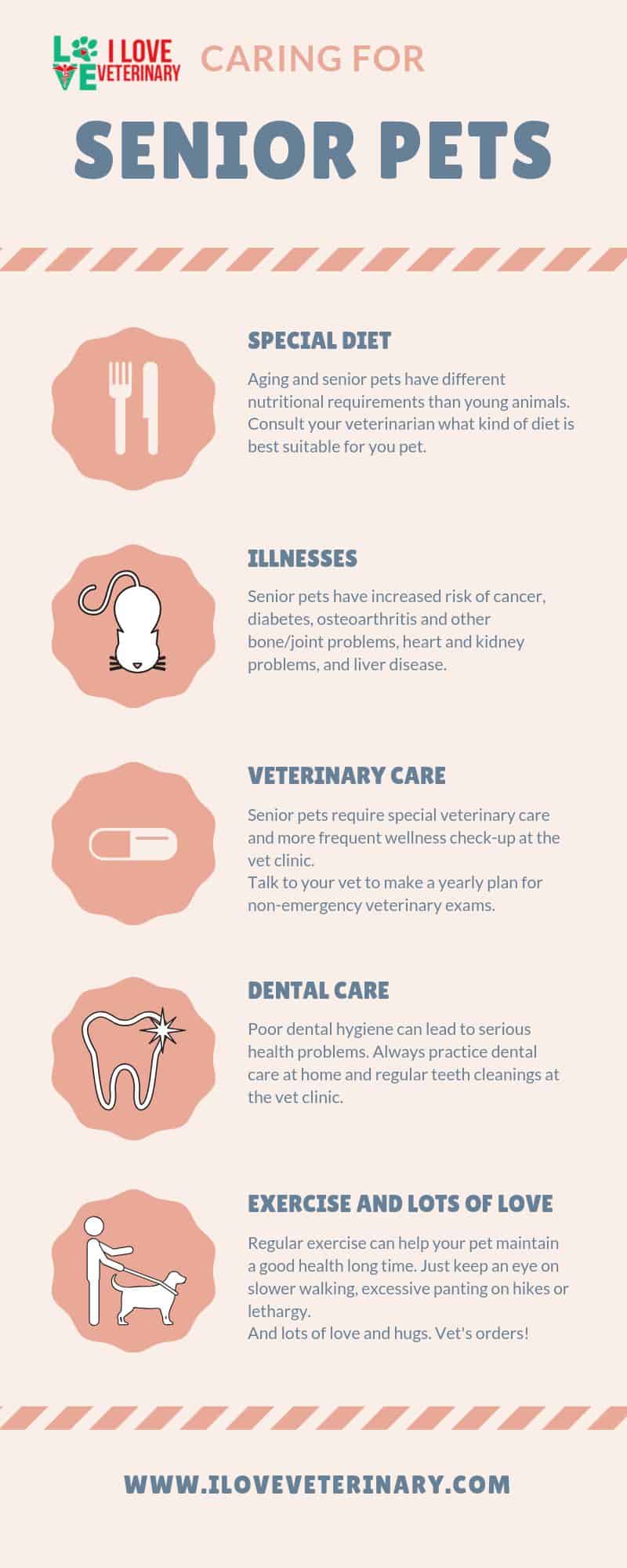What should we know when caring for senior pets?
Our pets are part of our family and lives and we want to give them the best care possible.
“Getting old” can be different for different pets. For example, cats are considered senior when they reach 7-8 years old. Large dog breeds have shorter lifespans in general so they would become senior sooner than small dog breeds that tend to live longer.
The myth that one dog year is 7 human years has been debunked so you should not believe that. Every dog breed is unique and the lifespan depends on genetics. Also, some cat breeds have different lifespans.
Keep in mind that age and getting older is not a disease. Yes, many older animals tend to develop health issues, but as we mentioned above, they are part of our family and we need to be beside them in their golden years.
If you want to learn more about how to modify your home to be suitable for your senior pet, the article by Porch.com has some
We prepared an infographic on what are the essentials for caring for senior pets. Don’t be afraid when your dog or a cat starts losing their sight or hearing. Or if they develop osteoarthritis and have trouble moving. They are more afraid of these changes and we need to provide emotional support too. Cuddle your senior pet more. Tell them that they are a good boy or a good girl, give them healthy treats (suitable for seniors) and love them forever!
Get this as a poster for your clinic or classroom! Order HERE!

If you liked this article, read “Pet Emergency” on our blog.
